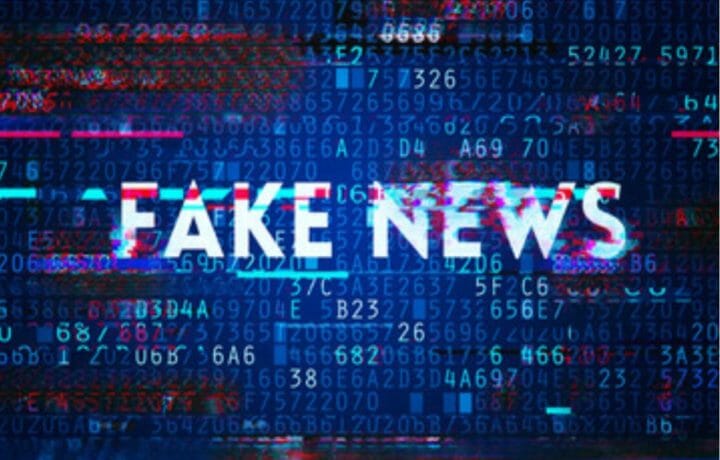Across social media earlier this month, there were many opinions expressed about those unidentified objects that were shot down over North America. In the absence of fact, conspiracy theories took root. It was far from the first time, however, and it certainly won’t be the last time. Misinformation spreads more easily than ever as more Americans now rely on social media as their primary source of news.
Even worse is the fact that disinformation is now spread just as quickly.
Such campaigns were employed in Brazil’s elections last fall, and played a significant role in the January 8 insurrection in Brasilia when protestors stormed numerous government buildings.
“Concerns about the global spread of disinformation are well founded,” said technology industry analyst Charles King of Pund-IT.
“In part that’s due to countless examples of criminals, politicians, nation states, news outlets, special interest groups and others worldwide successfully misleading sizable numbers of people,” King told ClearanceJobs. “Just as importantly, as the Internet evolved from a relatively static framework for exchanging conventional information to becoming an unmanageable global media conduit, people, organizations and countries rightfully fear that lies are becoming increasingly, effectively weaponized.”
A Clear And Present Danger
The threat of disinformation shouldn’t be understated, but misinformation and disinformation are also evolving. More worrisome is the fact that the spread of such disinformation may not be getting the attention it deserves.
“Awareness about mis- and disinformation was very high around the recent elections and during the COVID-19 pandemic. Since then, I think the focus has shifted from being on high alert for false information to understanding how much it is woven into our daily discourse,” explained Jorhena Thomas, professorial lecturer in the School of International Service at American University.
It is not too far of a stretch to consider misinformation and disinformation national security threats.
“False information feeds poor national security decision-making by our congressional leaders and leads to misinformed voting by the people who put those leaders into office, for example,” Thomas told ClearanceJobs. “National security, in general terms, refers to the overall protection of the country from people, conditions, and circumstances that could cause harm, whether intentional or unintentional. So, it is easy to make the argument that mis- and disinformation – and the related element of information warfare – can and should be considered national security threats.”
Technology Allows It To Spread
Though disinformation isn’t new, modern technology – notably social media – allows it to spread like never before.
“It has been clear that foreign state actors are active in (the social media) space, and are churning out specific talking points,” warned Peter Adams, senior vice president of research and design at the News Literacy Project.
Efforts were made by Russia to undermine the 2016 and 2020 elections, while Iran and China are also employing similar campaigns around the world.
“It has been a national security threat for years, but it is only now coming into focus how much of threat it is,” Adams told ClearancesJobs.
Combating these actions could require a better understanding of how the platforms work, and that while “friendly social interaction” is what is touted, in fact discourse actually is better for user engagement as it keeps people active longer. That in turn results in more ad revenue, while it only widens our national divide.
“Their business models have algorithms that utilize our biases against us,” Adams continued. “People like to see their opinions get affirmation, which provides that shot of dopamine and makes them feel good. This eventually results in an echo chamber where opinions are reinforced.”
Too often, individuals on these platforms fail to check the source of their information, and accept shared content from friends and colleagues as fact.
“What do we do when we believe a source is legitimate? We click. We join. We share,” said Monte Knode, vice president of the cybersecurity research firm Horizon3.ai. “We click without verifying, and like a successful phishing or watering hole attack, we open our homes and work to whatever is at the other end.”
Worse Before It Gets Better
The situation is likely to get worse, and won’t likely get any better – at least unless Americans can become a bit more news literate and media savvy.
“We need to examine our ‘go-to-sources for news,” said Adams. “There are so many sources, but we neet to develop a better understanding of makes the media credible.”
A focus on media literacy is often offered as a solution.
“This means teaching people how to process information on social media and other platforms, and how to have a healthy dose of skepticism while reading/watching content – wherever it comes from,” said Thomas. “The other school of thought puts the onus on technology platforms to monitor and address false information. A combination of the two, if implemented well, could be effective. Overall, however, I lean toward teaching people, children and adults alike, to understand the tricks of disinformation, the magnetic pull of our own biases toward what we want to believe, and how to slow down when reading/watching content to ask a few basic questions before we believe and/or share it.”
Younger Americans have now grown up being digital natives that increasingly rely on their mobile devices for a seemingly endless stream of content. At issue is that they may still need to be taught how to evaluate the creditability of those sources. It is also as much about instilling trust as distrust in news organizations.
“Too many people, especially younger people, can believe all sources of information have some agenda, and there isn’t a source of information to serve the public good,” said Adams. “If we give up on this idea, then everything can be assumed to be equally viable – and that’s what I worry about the most.”




